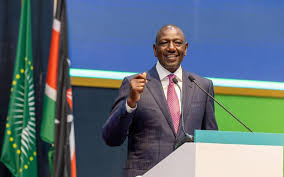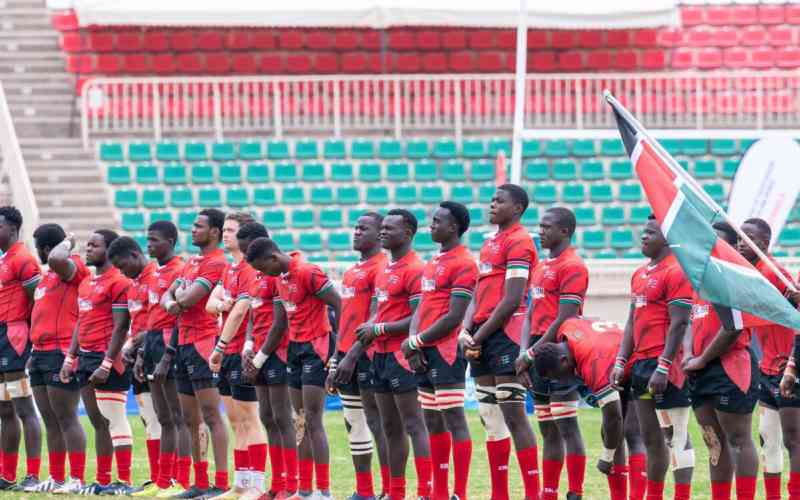Growing evidence that students in most African countries are learning far too little was the main agenda of a continental ministerial conference held in Senegalese capital Dakar last week. The conference was to establish a road map to ensure youths acquire skills they need for life and work.
The conference, themed ‘Revitalising Education Towards the 2030 Global Agenda and the 2063 African Agenda’, observed that over 60 million African children reach adolescence lacking basic literacy and numeracy skills. The issue is that although progress has been made in getting children to enter and stay in school, deficits in learning and skills are still of a major concern.
Dr Jennifer Blanke, the vice-president of agriculture, human and social development at the African Development Bank, blamed African education systems for the continent’s lack of critical mass of skilled labour.
“Most African education systems face a triple crisis: scarce human capital, low quality learning resources and poor social inclusion,” said Blanke in a presentation titled, ‘Building Africa’s Education Systems for a Prosperous Future’.
Basically, educational quality shortcomings in most African countries are reflected in the students’ lack of foundation skills and critical competencies. According to the United Nations Educational Cultural Organisation, on average, a third of primary school pupils exit schooling without attaining the capacity to read and write. Unfortunately, better education and training will not come for free, particularly given the large numbers of young people reaching school age.
Bearing this in mind, the delegates used the conference as a platform to hold dialogue and as a policy-making initiative on how to transform Africa’s ailing education systems into effective tools for job-creation, social development, Africa’s cultural renaissance and pan-African identity.
In essence, the story-line of the ‘ADEA 2017 Triennial on Education and Training in Africa’ was how to make education an instrument for eradicating poverty and promoting prosperity in the continent that is currently the home of 50 per cent of the world’s children of primary and lower secondary school age who are not in school.
“In this regard, many young Africans, even if they are lucky enough to complete secondary education, are either unemployed or unemployable due to a lack of basic mathematics and science skills,” said Kwame Akyeampong, a professor of international education and development at the Centre for International Education in University of Sussex.
Amid efforts to fix the continent’s tattered education systems, African education leaders and experts seemed worried of the emerging youth bulge that is often erroneously viewed as an economic and labour dividend. During a plenary session on skills development, youth employability, entrepreneurship and decent work for all, Abdoulie Janneh, a former under secretary at the United Nations Economic Commission for Africa, described high rate of unemployment among the youth in Africa as one of the most pressing social, economic and political challenges facing the continent in the 21st century.
“Despite the strong growth performance of African economies, the continent has been unable to create sufficient jobs to absorb young people graduating from schools and colleges,” said Janneh.
The crux of the matter is that high rates of youth unemployment have almost become a structural problem on the continent, and more in Sub-Saharan Africa, where the situation is made more complicated by demographic transition in the region, usually characterised by the youth bulge. Besides, the unemployment crisis is not only anchored in lack of skills per se. According to Borel Anicet Tagne, an education economist at the African Development Bank, while 54 per cent of job-seekers in Africa have little or no skills at all, 41 per cent have advanced qualifications but not the set of skills required by employers. Subsequently, while Africa has the potential to leapfrog some technological steps, most countries are missing out on this opportunity as a result of mismatch of skills and under-investing in science, technology, and research and development.
Reporting the ongoing consultations on the World Development Report 2018 titled ‘Realizing the Promise of Education for Development’, Halsey Rodgers, a co-director of the project, warns that in most instances, the highest return on investment in learning is outside the education system itself. He singled out nutrition and other ways to prepare children for school, as crucial aspects to learning.
“Quite often, schooling that does not lead to learning undermines the promise,” says Rodgers.
Notably that is the situation in Kenya where, according to the United Nations Children’s Fund (UNICEF), an estimated 35 per cent of children under the age of five are stunted, which means they are usually short of their age as a result of being undernourished. “Children who are stunted at an early age are at high risk of impaired cognitive development, which adversely affects their learning and retention,” said a UNICEF statement at the conference.
Nonetheless, although datasets from Brookings Institution’s Centre for Universal Education indicate that Kenya, Cameroon and Tanzania, at about 10 per cent, have some of the lowest average rates of pupils not in school and not learning in Sub-Saharan Africa, the situation is likely to change in Kenya as a result of the ongoing drought. According to UNICEF, last month, 174,000 children in pre-primary and primary school were not attending classes due to the drought, while surveys conducted in the affected counties showed acute malnutrition above 30 per cent.
Stay informed. Subscribe to our newsletter
But despite such lofty ideals, the Dakar conference has become a milestone of warning African governments that unemployable youth bulge could trigger unstoppable political and social upheavals. In this regard, the conference resonated with the late Julius Nyerere’s faded dream of education for self reliance, a dream that was not just rejected in his country Tanzania but also by the rest of Africa. Nevertheless, the conference sent a strong message that schooling without learning cancels the promise of education as a driver of an individual and national well-being.
- The writer is an education analyst. [email protected]
 The Standard Group Plc is a
multi-media organization with investments in media platforms spanning newspaper
print operations, television, radio broadcasting, digital and online services. The
Standard Group is recognized as a leading multi-media house in Kenya with a key
influence in matters of national and international interest.
The Standard Group Plc is a
multi-media organization with investments in media platforms spanning newspaper
print operations, television, radio broadcasting, digital and online services. The
Standard Group is recognized as a leading multi-media house in Kenya with a key
influence in matters of national and international interest.
 The Standard Group Plc is a
multi-media organization with investments in media platforms spanning newspaper
print operations, television, radio broadcasting, digital and online services. The
Standard Group is recognized as a leading multi-media house in Kenya with a key
influence in matters of national and international interest.
The Standard Group Plc is a
multi-media organization with investments in media platforms spanning newspaper
print operations, television, radio broadcasting, digital and online services. The
Standard Group is recognized as a leading multi-media house in Kenya with a key
influence in matters of national and international interest.








